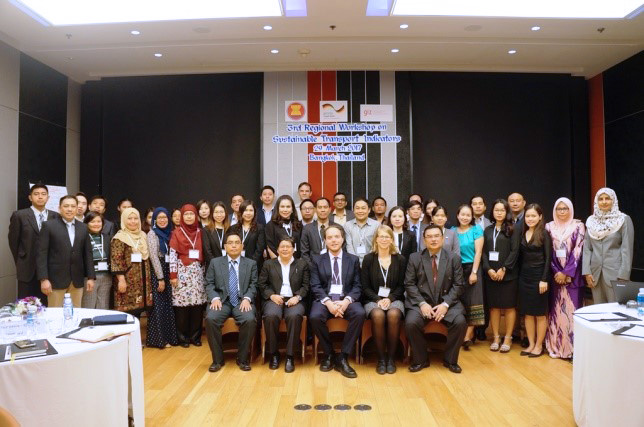
With a growing vehicle fleet that is already Asia’s second largest, the ASEAN region faces related pressures including climate change, air pollution, and traffic congestion. Recognising that effective policy interventions depend on credible data, experts and representatives from all 10 ASEAN member states and the ASEAN Secretariat met in Bangkok on 29 March for the 3rd Regional Workshop on Sustainable Transport Indicators.
Workshop participants reviewed similar efforts from around the world, taking in lessons from other initiatives’ successes and missteps. They discussed practical issues surrounding choosing, measuring, sharing, and consistently monitoring indicators. Participants agreed that besides reporting data, an effective monitoring framework needs to tell the ‘stories’ emerging from the region’s progress towards its sustainable transport goals. Critically, the workshop heard that robust indicator data is a result of active monitoring, rather than a precondition – meaning countries can get started right away. All of these inputs will help guide development of regional guidelines for sustainable transport indicators.
The 3rd Regional Workshop on Sustainable Transport Indicators took place in advance of the second meeting of the ASEAN Expert Group on Sustainable Land Transport (EGSLT). The EGSLT leads implementation of sustainable transport activities under ASEAN’s Kuala Lumpur Transport Strategic Plan 2016—2025.
Energy Efficiency and Climate Change Mitigation in the Land Transport Sector in the ASEAN Region project (in short: Transport and Climate Change, or TCC) is implemented by GIZ and the ASEAN Secretariat and is funded by the German Ministry for Economic Cooperation and Development (BMZ). For more details, contact: Julia Nagel, julia.nagel@giz.de
